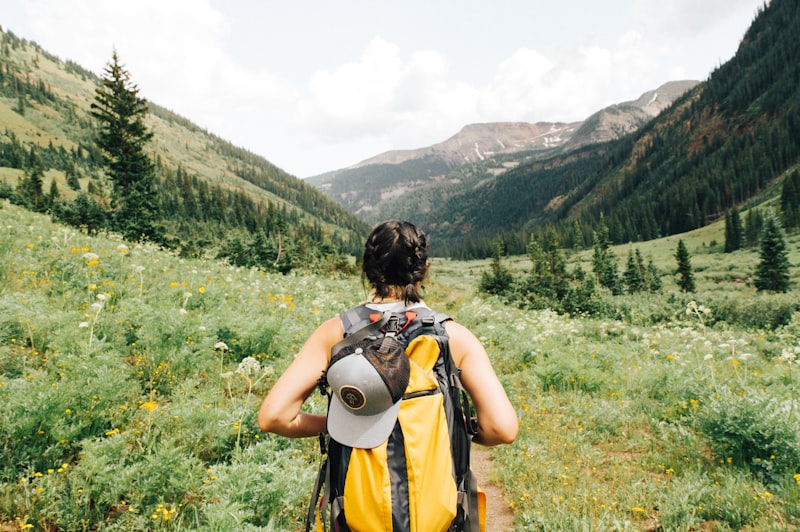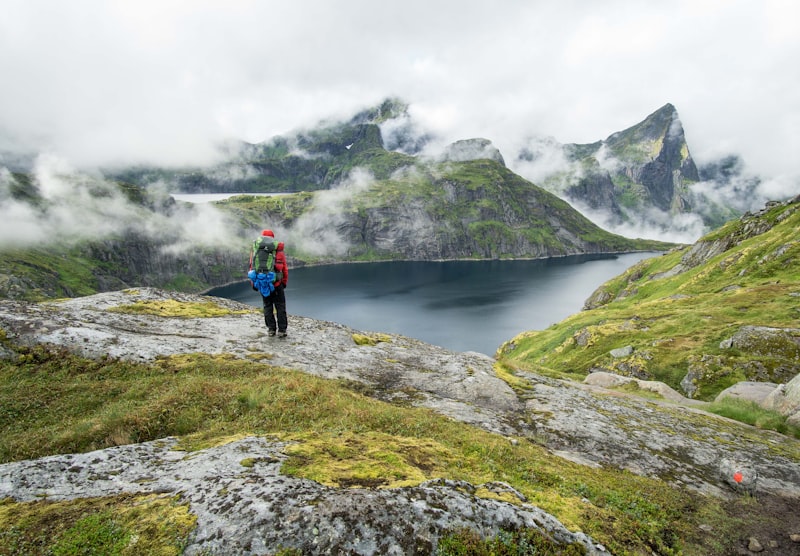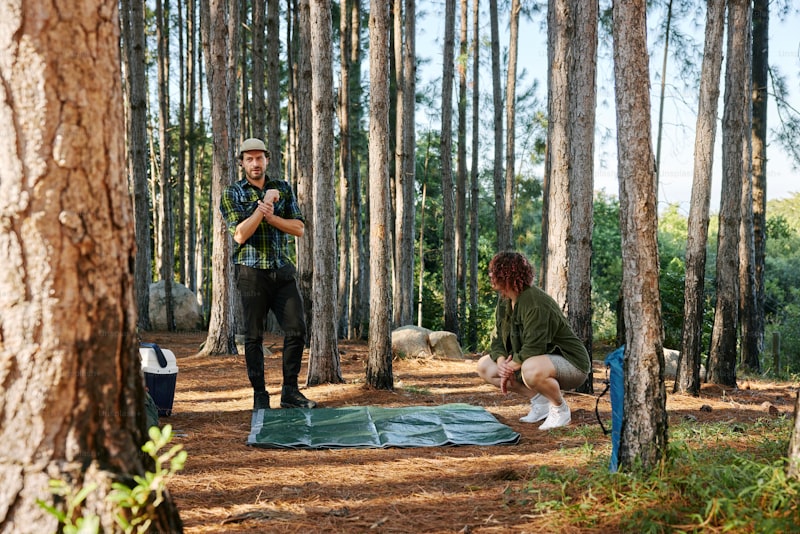Nature plays a pivotal role in outdoor recreation, offering not just a backdrop but an essential element that enhances the entire experience. When we step outside into green spaces, forests, or near bodies of water, we’re not just indulging in leisure activities; we’re immersing ourselves in environments that have a profound impact on our well-being.
One of the key benefits of nature in outdoor recreation is its ability to reduce stress and improve mental health. Studies consistently show that spending time in natural settings can lower cortisol levels, decrease anxiety, and promote a sense of calm. Whether hiking through a forest, camping by a lake, or simply sitting under a tree, the sights, sounds, and smells of nature have a therapeutic effect that rejuvenates the mind.
Moreover, nature provides a playground for physical activities. From biking trails to rock climbing spots, natural landscapes offer diverse opportunities for exercise and adventure. Unlike indoor gyms or urban environments, outdoor settings present challenges and rewards that are dynamic and unpredictable, making physical activities more engaging and enjoyable.
Beyond personal benefits, outdoor recreation in nature fosters a deeper connection with the environment. It increases awareness of conservation issues and encourages sustainable practices. People who regularly engage in outdoor activities are more likely to advocate for the preservation of natural habitats and wildlife, ensuring that future generations can also enjoy these resources.
In essence, nature isn’t just a backdrop for outdoor recreation; it’s an active participant that enriches our experiences physically, mentally, and emotionally. Whether seeking solace in a quiet forest or seeking thrills on a mountain trail, the role of nature in outdoor recreation is indispensable, offering both sanctuary and adventure to all who venture outdoors.
Exploring the Healing Powers of Nature: How Outdoor Recreation Boosts Mental Health
Engaging in outdoor activities amidst nature’s embrace isn’t merely about physical exercise; it’s about connecting with something larger than ourselves. Whether it’s a leisurely stroll through a serene forest, a challenging hike up a mountain trail, or simply lounging by a tranquil lake, nature has a unique way of soothing our minds and spirits.

The healing powers of nature stem from its ability to reduce stress and anxiety levels. Imagine the gentle rustle of leaves, the crisp scent of pine trees, or the rhythmic flow of a stream—these sensory experiences have a calming effect, easing tension and promoting relaxation.

Moreover, outdoor recreation encourages physical activity, which releases endorphins—natural mood lifters—in our bodies. This dual benefit of exercise and natural surroundings works synergistically to improve our mental state. It’s like a natural therapy session, where nature’s beauty serves as both the backdrop and the healer.
In a world increasingly dominated by screens and concrete jungles, reconnecting with nature becomes essential. It’s not just about escaping the hustle and bustle but about finding solace in the simplicity of nature’s wonders. It’s about rediscovering ourselves in the vastness of the outdoors, where the horizon expands beyond our worries and the air is filled with possibilities.
So, the next time you feel overwhelmed or stressed, consider stepping outside. Embrace the healing powers of nature, where every trail taken and every sunset witnessed becomes a testament to its profound impact on our mental well-being.
Beyond Adventure: Nature’s Impact on Physical Fitness in Outdoor Activities
Engaging with nature goes beyond mere adventure; it profoundly influences our physical fitness and well-being. When we step outside into the natural world, whether it’s hiking through lush forests, cycling along rugged trails, or simply taking a leisurely walk in a park, our bodies respond in remarkable ways.
The physical benefits of outdoor activities are manifold. Unlike the monotony of indoor gyms, outdoor environments offer varied terrain and natural obstacles that challenge different muscle groups. Hiking uphill strengthens leg muscles and improves cardiovascular health, while navigating uneven paths enhances balance and coordination. Cycling through rugged landscapes not only boosts endurance but also engages core muscles as you navigate twists and turns.
Moreover, exposure to natural light during outdoor activities has significant health benefits. Sunlight is a natural source of vitamin D, crucial for bone health and immune function. It also helps regulate our circadian rhythm, promoting better sleep patterns and overall well-being. Breathing fresh air rich in oxygen increases our lung capacity and improves respiratory efficiency, benefiting cardiovascular health.
Beyond physical exertion, nature has a profound impact on our mental and emotional well-being. The serene beauty of natural landscapes reduces stress levels and promotes relaxation. Studies show that spending time in green spaces lowers cortisol, the stress hormone, and boosts serotonin, the mood-regulating neurotransmitter, leading to improved mental clarity and a more positive outlook on life.
Outdoor activities also foster a sense of connection with the natural world. Whether it’s marveling at a scenic vista, listening to birdsong, or feeling the wind against your face, these experiences evoke a sense of awe and wonder that rejuvenates the spirit. This emotional connection to nature encourages mindfulness and introspection, enhancing our overall sense of happiness and fulfillment.
Green Therapy: Harnessing Nature for Stress Relief and Emotional Well-being
Studies have shown that exposure to green spaces can significantly lower cortisol levels, the hormone responsible for stress. When you immerse yourself in nature, whether it’s feeling the soft grass beneath your feet or listening to the gentle rustle of leaves in the wind, your mind shifts into a state of relaxation. This isn’t just anecdotal; it’s backed by science. Researchers have found that spending time in natural environments can improve mood, increase feelings of happiness, and even boost cognitive function.
But why does nature have such a profound impact on our well-being? One reason is biophilia, the innate human tendency to seek connections with nature and other forms of life. When we engage with natural environments, whether consciously or not, we’re fulfilling a deep-seated need embedded in our biology.
Moreover, green therapy isn’t limited to rural landscapes; urban green spaces like community gardens or even potted plants in your apartment can provide similar benefits. The key lies in actively engaging with nature, whether it’s through gardening, hiking, or simply sitting under a tree and observing the world around you.
In essence, green therapy offers a holistic approach to improving mental health by leveraging the healing power of nature. It’s about recognizing that our well-being is intricately connected to the health of the environment around us. So, the next time you feel stressed or overwhelmed, consider taking a moment to step outside and let nature work its magic.
Conservation through Recreation: How Outdoor Activities Promote Environmental Awareness
Imagine a world where every hike, every camping trip, and every kayaking adventure not only exhilarates the spirit but also nurtures a deeper connection to nature. This is the essence of conservation through recreation – the idea that engaging in outdoor activities can foster a greater appreciation for the environment and encourage sustainable practices.
When we immerse ourselves in nature through activities like hiking trails or birdwatching in local parks, we begin to witness firsthand the beauty and fragility of our natural surroundings. This experiential learning sparks curiosity and a desire to protect what we see. It’s like discovering a hidden treasure; the more we explore, the more we understand the delicate balance that sustains our ecosystems.
Outdoor activities also provide opportunities for education and awareness. Many conservation organizations and park services offer guided tours and interpretive programs that highlight local flora, fauna, and conservation efforts. These experiences not only educate participants but also inspire them to become stewards of the environment.
Moreover, recreational activities often promote eco-friendly behaviors. Whether it’s packing out trash after a camping trip or using biodegradable products, outdoor enthusiasts are increasingly mindful of their impact on the environment. This consciousness extends beyond individual actions to advocacy for policies that support conservation and sustainability.
In essence, conservation through recreation is about forging a personal connection with nature. It’s about recognizing that our actions today shape the world of tomorrow. By enjoying the outdoors responsibly, we not only enhance our own well-being but also contribute to the preservation of natural habitats for future generations.
The Wild Classroom: Learning and Education in Natural Outdoor Settings
In this unconventional educational setting, students of all ages have the opportunity to explore, discover, and learn in a way that traditional classrooms simply can’t offer. Whether it’s studying biology by observing wildlife in their natural habitats or learning physics through hands-on experiments with natural elements, the possibilities are as vast as the great outdoors itself.
One of the key advantages of the wild classroom is its ability to stimulate all the senses. Instead of staring at screens or textbooks, students engage with their surroundings using touch, smell, sight, and sound. For instance, understanding the concept of photosynthesis becomes much more vivid when you witness plants converting sunlight into energy right before your eyes.
Moreover, learning in natural outdoor settings promotes physical activity and overall well-being. It’s a refreshing break from the sedentary indoor lifestyle and encourages a deeper connection with nature. Studies have shown that exposure to green spaces can reduce stress, enhance creativity, and improve concentration levels—a perfect recipe for effective learning.
Another significant aspect of the wild classroom is its role in fostering environmental stewardship. When students interact with nature firsthand, they develop a profound appreciation for the environment and a sense of responsibility towards preserving it. This experiential learning approach nurtures future generations who are not only knowledgeable about ecological issues but also motivated to take action to protect our planet.
Reconnecting with Nature: The Psychological Benefits of Outdoor Recreation
In today’s fast-paced digital age, many of us find ourselves increasingly disconnected from the natural world. However, taking time to engage in outdoor recreation can offer profound psychological benefits. Studies have shown that spending time in nature can reduce stress levels and improve overall well-being. Whether it’s hiking through a forest, kayaking on a tranquil lake, or simply strolling through a local park, these activities allow us to unplug from our hectic lives and reconnect with the beauty and tranquility of the outdoors.
One of the key psychological benefits of outdoor recreation is its ability to alleviate stress. The sights and sounds of nature have a calming effect on the mind, helping to lower cortisol levels and reduce feelings of anxiety. Additionally, spending time outdoors encourages physical activity, which in turn releases endorphins and boosts mood. This combination of natural beauty and physical exertion can have a powerful impact on mental health, fostering a sense of peace and relaxation.

Moreover, outdoor recreation offers opportunities for mindfulness and reflection. Away from the distractions of screens and technology, individuals can immerse themselves in the present moment and appreciate the small wonders of nature—a blooming flower, the rustling of leaves, or the songs of birds. This mindfulness practice can enhance cognitive function, improve concentration, and promote emotional resilience.
Beyond the immediate benefits, regular outdoor activity has been linked to long-term improvements in mental health. Studies suggest that individuals who spend more time in green spaces report lower rates of depression and greater overall life satisfaction. Nature serves as a natural mood enhancer, providing a refreshing break from the pressures of daily life and fostering a sense of connectedness to the world around us.
The psychological benefits of outdoor recreation are profound and multifaceted. By immersing ourselves in nature, we can reduce stress, enhance mindfulness, and improve our overall well-being. Whether it’s a brief walk in the park or a weekend camping trip, taking time to reconnect with nature is essential for maintaining a healthy mind and body.
Sustainable Adventures: Promoting Eco-friendly Practices in Outdoor Activities
Are you ready to explore the great outdoors while also protecting the environment? Sustainable adventures combine the thrill of outdoor activities with a commitment to eco-friendly practices. From hiking to kayaking, these activities promote conservation efforts and minimize ecological footprints.
Imagine trekking through lush forests, breathing in the fresh air, and encountering diverse wildlife—all while leaving no trace behind. This is the essence of sustainable adventures. By adhering to Leave No Trace principles, outdoor enthusiasts can enjoy nature responsibly. Simple actions like packing out trash, using reusable gear, and staying on designated trails preserve natural habitats for future generations.
Kayaking and canoeing offer serene ways to appreciate waterways without harming aquatic ecosystems. Paddlers can paddle quietly, observing wildlife without disturbing their habitats. Choosing biodegradable sunscreen and cleaning gear thoroughly before entering different water bodies further minimizes environmental impact.
For thrill-seekers, rock climbing and mountaineering present exciting challenges amidst breathtaking landscapes. Responsible climbers practice ‘clean climbing,’ avoiding fixed anchors and minimizing alterations to natural rock formations. This preserves the integrity of climbing sites and respects the natural beauty of the surroundings.
Camping under the stars provides an intimate connection with nature. Adopting practices like using solar-powered lanterns and reusable camping utensils reduces waste and energy consumption. Choosing campsites that promote sustainable initiatives ensures that each outdoor excursion contributes positively to environmental conservation efforts.
Whether you’re hiking, biking, or simply enjoying nature walks, each outdoor activity can be an opportunity to support eco-friendly practices. By being mindful of your impact on the environment and advocating for sustainability, you can play a crucial role in preserving natural landscapes for future generations to explore and cherish.
Ready to embark on your next adventure? Join the movement towards sustainable outdoor activities and experience the beauty of nature while protecting it for years to come.
Frequently Asked Questions
Why is nature important for mental health during outdoor adventures?
Discover why nature plays a crucial role in enhancing mental health during outdoor adventures. Learn how exposure to natural environments can reduce stress, improve mood, and foster a sense of tranquility and well-being. Explore the benefits of connecting with nature for mental rejuvenation and emotional balance.
How can sustainable practices be integrated into outdoor activities to protect natural ecosystems?
Discover how to integrate sustainable practices into outdoor activities to preserve natural ecosystems. Learn practical methods for minimizing environmental impact while enjoying outdoor adventures.
How does outdoor recreation contribute to environmental conservation?
Discover how outdoor recreation supports environmental conservation efforts by promoting appreciation for nature, fostering stewardship values, and advocating for sustainable practices.
What role does biodiversity play in enhancing outdoor recreational experiences?
Discover how biodiversity enriches outdoor recreational experiences by providing diverse landscapes, wildlife encounters, and natural tranquility. Learn how ecosystems support activities like hiking, birdwatching, and photography, creating memorable and immersive outdoor adventures.
What are the benefits of connecting with nature during outdoor activities?
Engaging in outdoor activities provides numerous benefits, such as reducing stress, enhancing mood, and improving mental clarity. Connection with nature boosts overall well-being by fostering relaxation and encouraging physical health through exercise.


